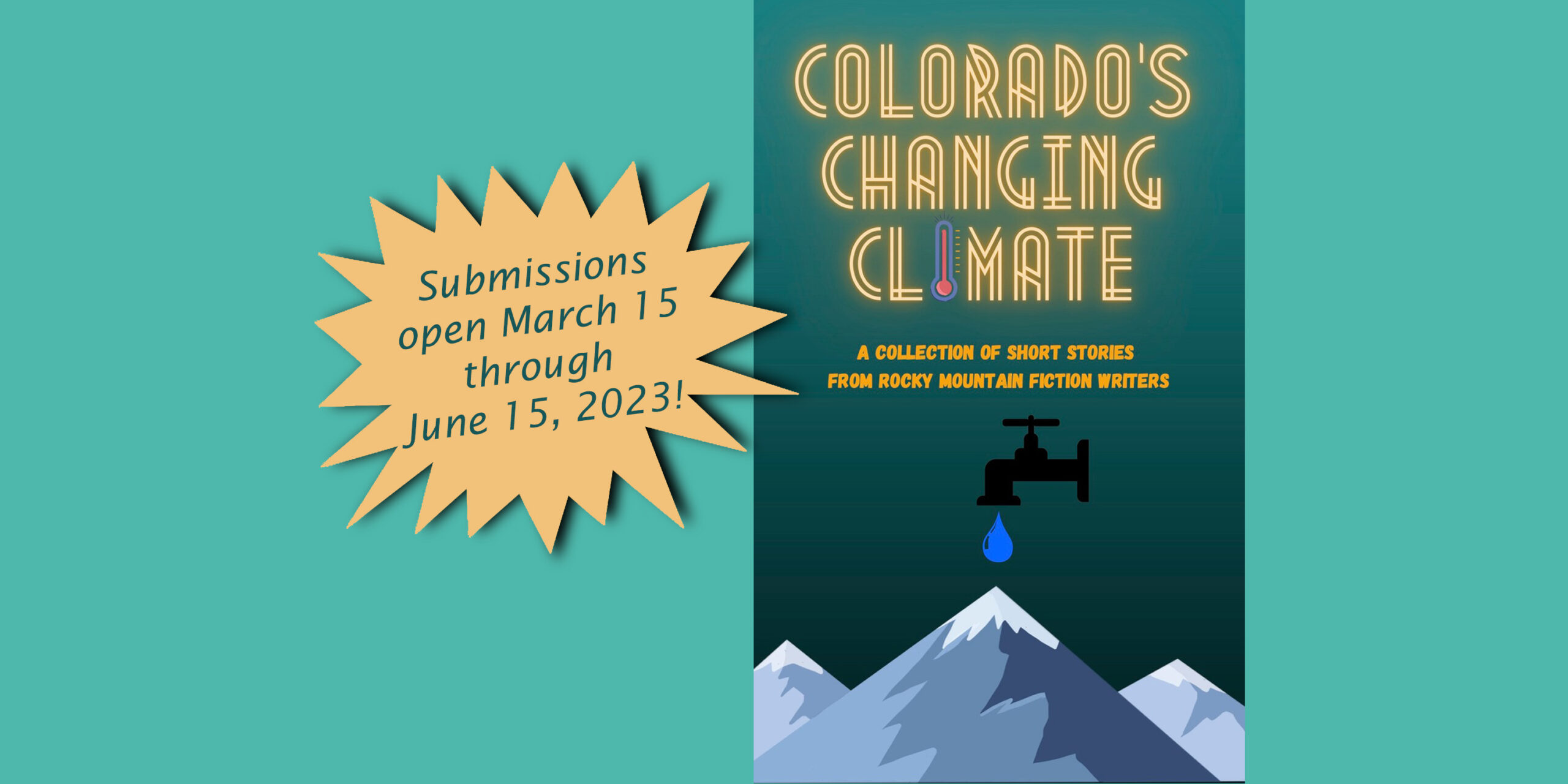When last year’s Bizarre Bazaar anthology was published, Colorado’s changing climate was already on my mind. In December 2021, a few weeks after that feeble dusting that registered as Denver’s latest first snowfall on record, the Marshall Fire incinerated a thousand homes in Louisville and Superior. Gale force winds drove the inferno through entire neighborhoods. Two close friends lost everything. After the fires burned out, all that remained of their home was ashes and a bare foundation.
Communities pull together when disaster strikes. A nod from my father-in-law, a few essentials in a box, a few nights with a sore back—that was all it took for my wife and I to move in with her dad. The upside? Our friends could move into our home. With a roof over their heads again, and with those few possessions they hastily grabbed as they evacuated, maybe they could rebuild their life. These were not remote islanders facing rising seas and typhoons on the other side of the planet. These were our Colorado friends. And they had just become climate refugees. Climate change had come to Colorado.
But Colorado has never been insulated from climate change. A year earlier, the East Troublesome Fire capped one of the worst wildfire seasons on record, with smoke smothering the front range for most of the summer. My car still has dents from 2017’s destructive hail. Floods drowned the Front Range in 2013, and a tornado devastated Windsor five years before that. All this in the midst of a 23-year drought that has reduced the Colorado river to a trickle. The Marshall Fire didn’t bring climate change to Colorado. Climate change was already here.
In the days and weeks after the Marshall Fire, amid the boxes and chaos that came with settling into my father-in-law’s guest room, I did what any writer would do. I origami-folded my legs beneath the ill-fitting corner desk that I’d commandeered as a writing space, and I wrote. But climate change had infected my stories. An inciting incident here, a barrier to overcome there. The backstory for a murder. The driving force for betrayal. A fantastic vision of tomorrow. Climate whispered or screamed from every story I wrote.
I can’t be the only one.
Colorado’s Changing Climate—that’s the theme for our 2024 RMFW anthology. I didn’t conceive of this theme so much as succumb to it. An anthology of short fiction on the most relevant issue of our time. Linda (LV) Ditchkus shares my passion, and we’re both excited to co-edit this challenging and timely project. All we need are great stories from you.
Write a page-turning story with a strong premise, characters embroiled in conflict, a rich setting, a stunning climax, and a tie-in to Colorado’s changing climate. Intrigue us with how you use the theme. Climate is more than simple window dressing for setting. How can it alter the character arc or twist the plot? What does it say about the world we live in?
We seek stories from every fiction genre—romance, western, mystery, adventure, suspense, fantasy, and horror. Yes, we’d love to read your future Colorado dystopias. But Colorado’s climate has been changing for years, so please send us your historical fiction, too.
Submissions will be open March 15 – June 15, 2023. Visit the RMFW anthology submission page to submit your story or volunteer to review and judge submissions.
Is Colorado’s changing climate burning in your stories? We can’t wait to read what you create!
#####

Paul Martz is an award-winning science fiction author and technology blogger. His edgy, techno-smart stories were influenced by his career as a virtual reality software developer and the time he spent drumming for punk and alternative bar bands. Originally from Flint, Michigan, Paul resides in Erie, Colorado, where he sips lattes while the snow sublimates. He is still trying to teach his cat to play drums. Visit him at www.PaulMartz.com.

